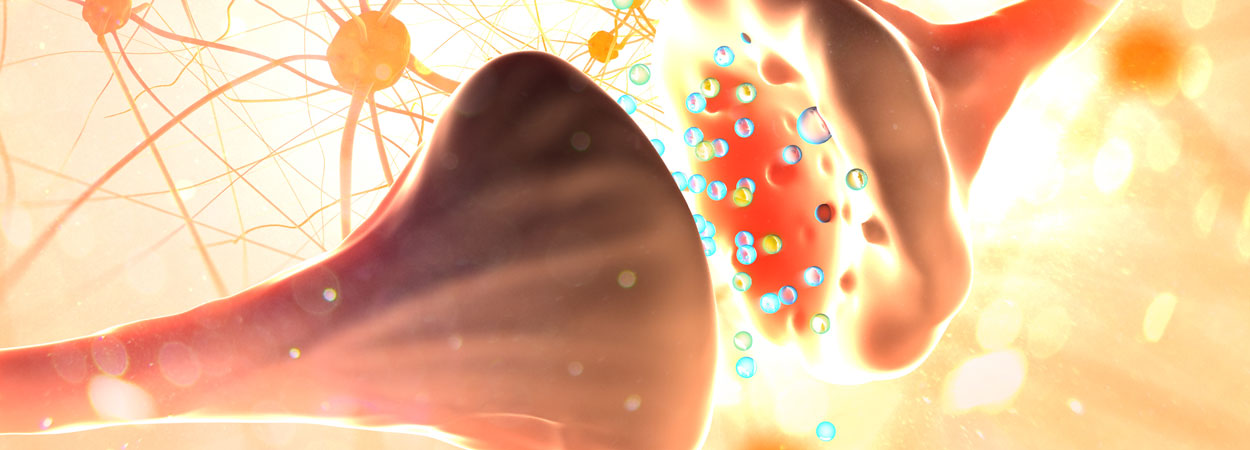BRAIN HEALTH NUTRITION

Your body depends on proper nutrition for a better state of wellbeing, and the brain is no exception.
In this day and age, where so much misinformation exists about health and wellness, it’s critical to understand the role nutrition plays in a healthy, thriving, optimally functioning brain as we age.
What does an “optimally functioning” brain look like? How do we retain our memory, concentration, and overall cognitive health as we get older?
Developing a program for healthy brain function carries over into every realm of life and wellbeing, and can be broken down into a few categories:
- Nutrients
- Exercise
- Sleep
- Telomere Health
- Stress
- Amyloid Support
DON'T HAVE TIME TO READ THE ENTIRE GUIDE NOW?
Fill out a downloadable PDF version of the guide you can reference later.
BEST NUTRIENTS FOR BRAIN FUNCTION
Certain nutrients from food and supplements are foundational for a healthy brain.
OMEGAS
The human brain is made up of about 80-percent fat, so a diet rich in the right kinds of healthy fats is an essential part of brain health nutrition. People have long referred to fish as “brain food,” and now we know why. EPA (eicosapentaenoic acid) and DHA (docosahexaenoic acid) are long-chain polyunsaturated fatty acids that keep the fat in brain tissue alive and functioning correctly.* This process is particularly important for developing brains.
We consider certain omega fatty acids “essential,” as you must obtain them from foods because humans cannot synthesize them. Linoleic acid (LA) and a-linolenic acid (ALA) are examples of essential fatty acids. While EPA and DHA can be synthesized from ALA, the conversion efficiency is low, so eating foods rich in these brain-healthy fats is vital.* Both omega-3 and omega-6 fatty acids act as crucial structural components of the body’s cell membranes and provide energy.* Omega-3 long-chain fatty acids, like EPA and DHA, are reputable for their ability to support a healthy inflammatory response.* They are also known for their role in heart health and human brain development and maintenance, which is why DHA, in particular, is highly recommended for pregnant women.* Furthermore, omega-3s are essential for maintaining a healthy brain throughout life.* They strengthen and preserve cell membranes and improve brain cell communication. Studies show that in older adults, low DHA levels can be associated with accelerated aging.*
DMG
Dimethylglycine (DMG) has made its way into clinical practice in recent years, and its impressive benefits for cognitive health have not gone unnoticed.*
Linked to improved memory, cognition, and focus in children and adults, DMG is a potent compound for mitochondrial and neurological function.* When you take DMG in supplement form, it crosses the blood-brain barrier, making it highly effective for maximizing brain function.*
Neurotransmitters depend on DMG as building blocks for the body to maintain an appropriate, balanced reaction to stress. DMG also contributes to brain health along with other body organs and systems due to its ability to improve blood circulation and oxygen utilization.
While more research is needed, current studies suggest DMG plays a significant role in supporting the brain under stress, reducing neurodegenerative, and age-related behavioral conditions.*
MAGNESIUM
Magnesium is a mineral that plays a role in over 600 bodily functions, including neurological aspects such as learning and memory.* One primary reason magnesium is useful for brain health nutrition is its role in lowering blood pressure, which can decrease the likelihood of age-related cognitive challenges.*
This vital nutrient also serves as a gatekeeper for the N-methyl-D-aspartate (NMDA) receptors, which live in the cells of the brain and support memory, learning, and development.* Magnesium resides inside of these receptors, regulating their signaling strength and helping to prevent over-stimulation.* When magnesium levels are low, receptor overstimulation can lead to neurological decline over time.*
MELISSA OFFICINALIS
Lemon balm, Melissa officinalis, is an edible herb native to Europe. This herb is used in the herbal medicine community for its bioactive compound, rosmarinic acid, promoting relaxation and increased levels of GABA.*
Melissa officinalis is also used for its inhibition of the enzyme, acetylcholinesterase, which degrades the neurotransmitter acetylcholine.* Research shows cognitive decline related to age could be linked to low acetylcholine levels.*
The mechanisms for how lemon balm works to support relaxation and brain health are not entirely understood.* Studies comparing this herb to others containing rosmarinic acid (thought to be the main active compound providing benefits) were not as effective as lemon balm. This data indicates specific properties and mechanisms of the plant are still unknown, but they may positively impact brain health. *
PYCNOGENOL
Pycnogenol, also referred to as pine bark, is an herbal supplement for things like hyperactivity, dry skin, heart health, metabolic issues, and neuroprotection.* Small amounts of its active ingredients are also in grape seeds, peanut skin, and witch hazel bark.
One animal study found that Pycnogenol helps to maintain nerve cell health due to its ability to manage oxidative stress and promote a healthy inflammatory response.*
ANTHOCYANINS
This polyphenol compound gives foods like blackberries their bright purple, red, and blue colors. They act as powerful free-radical fighters and help improve memory and protect the body on a cellular level. *
Anthocyanin-containing berries are linked with the reduction of age-related neurological decline and seem to help with motor and cognitive function.* This is in large part due to their ability to modulate inflammation and enhance neuroplasticity.* Anthocyanin works hand in hand with other neuroprotective phytochemicals like catechin, quercetin, and kaempferol.*
TURMERIC
Turmeric is a spice you might already have in your kitchen. Its bioactive ingredient curcumin provides many health benefits.* Turmeric and curcumin are most well known for their incredible ability to support a healthy inflammatory response, and are also associated with brain cell growth and memory.*
Neurons can form new connections in both children and adults, and even multiply in some regions of the brain. Brain-derived neurotrophic factor (BDNF) is a primary driver of this process, and low levels of BDNF are often linked to poor cognitive health. Curcumin may boost levels of this hormone, and it might also be for this same reason that it shows the potential to support memory and protect it against age-related cognitive decline. *

L-THEANINE
L-theanine is an amino acid found in green tea widely used for sleep support and relaxation.* Both good sleep and stress management are critical for a healthy brain.
As opposed to caffeine, L-theanine has a unique ability to increase alertness and promote calmness simultaneously.* It lowers the binding of glutamate to receptors, which is an excitatory neurotransmitter, while also increasing production of the inhibitory neurotransmitter, GABA.* Imbalances of both GABA and glutamate are linked to several cognitive and brain health issues.
High levels of stress impact your ability to think clearly, remain calm, and in many cases, make good decisions. L-theanine might work to reduce the molecular consequences of high stress that negatively impacts brain cells.*
VITAMIN K
Vitamin K is a fat-soluble vitamin that is most known for its role in blood clot formation. Vitamin K has two primary forms: K1, the less active form, and K2, the active form that delivers most of the health benefits.*
This nutrient is a potent free-radical fighter associated with brain protection and is essential for forming sphingolipids in brain cells.* Studies show that eating more vitamin K-rich foods or taking it as a nutritional supplement can work to support memory and stymie age-related neurocognitive issues. *
VITAMIN E
An important antioxidant, vitamin E may shield cells from the damage of free radicals and play other fundamental roles in the brain and central nervous system.* Neurons are built primarily out of cholesterol and polyunsaturated fats, which are very susceptible to oxidative damage. Vitamin E helps to protect neurons and slow natural neurodegeneration.*
VITAMIN C
Vitamin C is the most well-known nutrient for fighting free-radical damage and boosting immunity.* As an essential vitamin, it must be obtained from foods or nutritional supplements.
A lesser-known benefit of this vitamin is its ability to support brain health while aging. Low levels are associated with impaired memory.* Because of its potent free-radical fighting capabilities, a high intake of vitamin C might help protect memory and overall cognitive function with age.*
FOLATE AND B FAMILY VITAMINS
According to the Cleveland Clinic, B vitamins increase the production of neurotransmitters, therefore supporting cognitive and neurological health and the maintenance of memory throughout aging.*
Folate deficiency (vitamin B9), in particular, is common in older adults with memory issues. B vitamins are also crucial for pregnant women, as healthy levels promote proper fetal brain development, reduce the risk of congenital disabilities, and help with energy during pregnancy.*

WHAT DOES SLEEP DO FOR THE BRAIN?
Sleep is foundational for every aspect of our wellbeing and an absolute necessity for brain health.
During this time of recharging and repairing, the brain primes itself for proper cognition, memory, acuity, and focus. Without adequate sleep, you will likely find yourself more irritable, anxious, and less focused.
Studies confirm that sleep deprivation profoundly impacts the HPA axis’ function, as it significantly raises the output of cortisol. Intuitively, you probably are well aware that after a poor night’s sleep, you have brain fog and other unpleasant symptoms. Sleep allows you to solve problems more effectively, form and consolidate memories, think creatively, clear toxins, regulate appetite, and more. While sometimes an underlying issue must be addressed to improve sleep, starting with sleep hygiene is vital:
- Develop and stick to routines, such as sleeping and waking at the same time each day.
- Do something relaxing before bed at night, such as an Epsom salt bath, meditation, gentle stretching, or reading.
- Turn off all electronics two hours before bed. If you absolutely must use devices, use blue-light-blocking applications or glasses. Melatonin production is affected by the light given off from electronics, which interrupts sleep.
- Avoid caffeine after mid-day.
NUTRIENTS THAT CAN BE SUPPORTIVE OF SLEEP INCLUDE:
MAGNESIUM:
Magnesium supplementation can be very beneficial in people suffering from increased production of cortisol.* Magnesium also helps the body produce GABA, a calming neurotransmitter that helps to relieve stress and anxiousness.*
L-THEANINE:
This amino acid is supportive of brain health and sleep.* L-theanine boosts levels of GABA and other soothing neurotransmitters like dopamine and serotonin.* It also works to lower excitatory brain chemicals that are linked to stress and anxiousness.* Another impressive benefit of L-theanine is its ability to increase alpha brain waves, which are associated with a state of relaxation that you might experience while meditating, daydreaming, or during REM sleep.* L-theanine is useful for promoting relaxation and sleep without an overly sedating effect.*
MELATONIN:
The pineal gland produces melatonin following the natural contrast between bright daily sun exposure and darkness at night. Exposing the body to morning daylight and being outdoors during the day, along with sleeping in total darkness, can naturally promote healthy melatonin levels and sleep. There is now substantial research showing that EMFs interfere with melatonin production and can also have other harmful health effects. There are ways to measure EMF levels in your bedroom using a gauss meter, and you can also take simple measures to remove electronics from your sleeping space.
Other supplemental nutrients and herbs to support sleep include magnolia bark extract, lemon balm extract, Rhodiola Rosea extract, ashwagandha, and asparagus officinalis.*
HOW STRESS AFFECTS THE BRAIN
Like sleep, stress is a critical factor influencing brain health. The effects of specific stressors vary from person to person, but it’s well-known that high cortisol and other stress hormones negatively impact cognitive health and function.
Stress and anxiousness can lead to forgetfulness, memory loss, and learning problems. While acute stressors are normal and natural, stress and a buildup of cortisol in the brain can have adverse effects. For example, research shows that high cortisol can disrupt synapse regulation, harm brain cells, and even limit brain size.
Some of the same nutrients that support sleep also support stress, such as L-theanine and magnesium.* Others include Sam-e for neurotransmitter support, 5-HTP, Siberian ginseng, and other adaptogenic herbs, like licorice root and ashwagandha.*
Gut health and stress are also closely tied together. If your gut isn’t functioning well, you may have dysbiosis or another gut microbiome imbalance. This acts as a significant stressor on the body. Eighty-percent of brain chemicals, such as neurotransmitters, are produced in the gut. This is why many integrative medical providers refer to the gut as the second brain. All GI-supportive foods, supplements, and lifestyle changes will boost brain health, such as pre and probiotics.*
TELOMERES AS BRAIN HEALTH BIOMARKER
Telomeres are the ends of DNA strands. You can visualize them as the end of a shoelace. When DNA divides —which it does continuously— the strands become smaller, eventually leading to cell death. This is a natural process of cellular regeneration, but it’s important to support the health and longevity of the telomeres themselves. Telomeres are a biomarker for health and longevity and offer a snapshot of your biological age versus your chronological age. Shorter and more damaged telomeres often signify accelerated aging and shorter life expectancy.
Diminished telomere length is associated with structural changes in the brain and mild cognitive impairment. Shorter telomeres seem to reduce grey matter in the precuneus, a central brain region for metabolism and connections. There are also potential links between shorter telomere length and certain neurodegenerative conditions.
Some nutritional strategies that support brain health and sleep also help telomere health. A diet that is high in antioxidants from plant foods is critical. Sleep hygiene and nutrients that support rest are also important, as telomeres rejuvenate overnight. Omega-3 fatty acids, folate, B12, vitamin D, vitamin C, vitamin E, and a whole-foods diet that minimizes advanced glycation end products (AGEs) will support the health of your telomeres and brain.*

NATURAL SUPPORT FOR AMYLOID METABOLISM
While there’s still a lot of scientific unknowns about amyloid plaques, we understand that beta-amyloid protein buildup impacts neuroplasticity and cognition.
Amyloid plaques are sticky bunches of proteins called amyloid precursor proteins (APP), which break down into smaller fragments and group together in the brain, resulting in neuroentaglement – impaired neural communication and function. The proteins themselves are natural, and when the mind is functioning correctly, the fragments are broken down and eliminated. However, when plaques form due to an improper breakdown process, impaired brain function can result.
As with any immune response in the body, abnormal proteins attack when they are viewed by immune cells. These proteins form harmful free radicals when they disintegrate, which adversely affects cell membranes. The newly formed plaque goes on to impact the brain’s memory center, making it harder to recall old memories and create new ones.
The following four nutritional and lifestyle strategies appear helpful for dissolving amyloid plaques:
BOOST THE IMMUNE SYSTEM
A weak immune system can contribute to brain cell deterioration. If the immune system is not functioning as it should, immune enzymes known as complement proteins develop around the plaques. Taking dietary measures that support optimal immune function is essential. One centered around whole foods with plenty of brightly colored vegetables, fruits, varied protein sources, and healthy fats is ideal.
TAKE IN PLENTY OF FREE-RADICAL FIGHTING NUTRIENTS
Since oxidative damage caused by free radicals significantly impacts brain health, it’s vital to take in a variety of free-radical fighting antioxidants. Ones that show potential to support the reduction of amyloid plaques include vitamins A and E, as these tend to be low in people with beta-amyloid buildup.* Vitamin C is also essential, and eating a mostly plant-based diet will also ensure you’re benefiting from many different antioxidants.*
GET ADEQUATE SLEEP
High-quality sleep is essential for maintaining a healthy brain. Studies show that poor sleep disturbs the immune system and brain health. It may also contribute to the discharge of more tau proteins, which can accumulate and spread, primarily affecting memory and attention.
EXERCISE
Physical activity stimulates neurogenesis - the creation of new nerve cells - in the hippocampus, which is the brain’s memory and learning center. Further studies are needed, and there is no direct evidence that exercise can prevent the spread of amyloid plaques. However, trials have shown that aerobic exercise can slow the progression of neurodegenerative issues and improve cognition.

WHAT DOES EXERCISE DO FOR THE BRAIN?
Exercise is the factor most understood to slow mild cognitive impairment. If you want to have a healthy brain, you must find ways to move more.
Exercise is critical for heart health, metabolic health, and weight loss, but it’s also incredibly beneficial for brain-related health topics. Getting regular exercise can support unpleasant feelings of brain fog, mood problems, memory, and cognition. Aerobic exercise increases blood flow to the brain, and complex movements that target multiple muscle groups and joints can develop and maintain neuropathways.
Research shows that regular aerobic exercise appears to increase the size of the brain’s hippocampus, the area involved in verbal learning and memory. Physical activity is also known to reduce insulin resistance, lower inflammation, and boost the release of growth factors that affect brain cell health. In more roundabout ways, exercise supports brain health by helping to improve sleep and reduce stress. Studies also show that exercise increases levels of brain-derived neurotrophic factor (BDNF), which helps to protect and repair brain cells from degeneration and grow new neurons.
It doesn’t take a lot of exercise to reap these benefits. One hundred and fifty minutes per week of moderate aerobic activity, such as brisk walking, can be sufficient. It’s important that whatever type of activity you choose causes your heart rate to increase and the body to break a sweat. This will differ depending on your fitness level. Some people can achieve this moderate-brisk level of activity by simply walking, and others will need to jog, climb stairs, dance, or do any other number of more vigorous movements.
Complex movements are valuable for cognitive performance, as well. Particularly ones that involve coordination and balance, such as Tai Chi, Qigong, yoga, and dance. Agility drills using cones, a ladder, or objects you have at home are beneficial, as are simple movements like jumping jacks and jump rope.
CONCLUSION
For both prevention and support, nutrition and lifestyle tweaks can have a significant impact on your brain health. Between healthy foods, proper rest, regular exercise, mental stimulation, and targeted nutrients through foods and supplements, you can set the stage for optimal cognitive health and function.
THE TAKEAWAYS:
- Focus on key nutrients: omega-3 fatty acids, DMG, magnesium, alpha GPC, ME3 probiotics, lemon balm, Pycnogenol, anthocyanins, turmeric, L-theanine, vitamins K, E and C, and the B vitamin family.
- Get plenty of sleep.
- Manage stress levels.
- Support gut health.
- Support telomere health with omega-3 fatty acids, folate, B12, vitamin D, vitamin C, vitamin E, and a whole-foods diet.*
- Dissolve amyloid plaques naturally with an antioxidant-rich diet and exercise.*
- Shoot for at least 150 minutes per week of aerobic activity and compound movements like balance and agility training.

